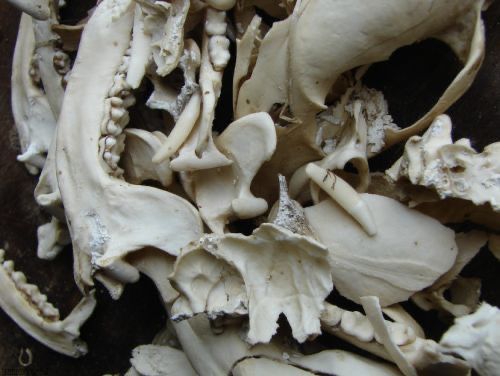By Anthony Miles
Stop! Please do not put your hands or fingers in the cages!
This ominous warning sits atop a bludgeoned, gray metal door. Now, what’s behind that door is just as important as the people who dare to walk in and out of it every day. The mysterious scene feels like the set-up of the newest Saw film, but rest assured it’s the farthest thing from it. Though, you would never believe that with all the metal cages rattling – and oh yea, – dog’s barking that can be heard each and every time that battered door is opened.
Don’t worry, I know a few people that can get you in and out without losing a limb. Prepare to meet your newest friends. Better yet think of them as your own personal search and rescue team. Take a minute to meet the wonderful staff at Liberty Humane Society (LHS), Hudson County’s only non-profit animal shelter.
When you first walk in to the shelter, it can be more than a little overwhelming. There are people and pets everywhere. (Warning: If you are afraid of dogs or cats and fear that your neighbor’s poodle is Satan himself or consider their friendly house cat kin to a lion, this is definitely not the place for you.) There is more to this place than meets the eye. Talk to Alycia Weir, supervisor at Liberty, and you will realize that this place is more than just a safe haven for animals.
 Weir like most of the staff at the shelter has pets of her own and she admits that not every dog is vicious just because they look that way. She has two dogs; a Pit Bull named Layla and a cocker spaniel named Dutchie and jokingly admits to “stay away from the cocker spaniel because he will kill you!” Weir is more than comfortable with her dogs and will even let them play with her two daughters, ages 6 and 9.
Weir like most of the staff at the shelter has pets of her own and she admits that not every dog is vicious just because they look that way. She has two dogs; a Pit Bull named Layla and a cocker spaniel named Dutchie and jokingly admits to “stay away from the cocker spaniel because he will kill you!” Weir is more than comfortable with her dogs and will even let them play with her two daughters, ages 6 and 9.
Doris Johnson, a Jersey City resident and mother of two, insists that she also made a good decision by having a Pit Bull around her kids. She says, “My older daughter loves my dog and [he] is great around my infant.”
Johnson who got her first dog when she was fifteen years old adds “don’t dislike the breed based on rumors because it all depends on how the dog is raised.”
The wonderful experiences that both Weir and Johnson have had with their dogs are not true for every pet owner. Unfortunately, the numbers are just not in their favor. According to Dog Bite Law Center, “In one study sponsored by the US Government Centers for Disease Control it was reported that 32% of all dog related killings of human beings in the United States are caused by Pit Bulls attacks, yet Pit Bulls constitute only 2% of all dogs. 70% of those mauling deaths were of children.
The Baltimore Sun reported on March 10, 2013 that “A Dundalk toddler was bitten in the face by a Pit Bull…sending the 20-month old girl to the hospital for several stitches.”
Another attack, according to WPRI.com says, “Warwick Police were called to a home on Spofford Avenue around 2 pm on Wednesday for a child who was bitten by a Pit Bull.”
Both victims were treated while both dogs were taken to a shelter and presumably put down.
Sherry Geck, a local Jersey City resident and volunteer at LHS says, “I unfortunately have never had a Pit Bull yet.” However, she does own two English bulldogs.
Geck adds, “[Pit Bulls] are really sweet and amazing dogs, just like any other breed… they get into the wrong hands and people abuse them.”
Donte Mallory, lead dog evaluator at Liberty, has been working with Pit Bulls at the shelter for the past two years. Mallory also owned a Pit Bull named Chloe until her passing at age 14.
He believes that being able to erase the phobia of Pit Bulls is going to be difficult. He adds, “People have their own opinions. It’s the person itself that trains the dog to be how it is.”
Mallory slipped in, “Some people are bad.”
After each dog is given their vaccinations, Donte monitors each dog’s behavior as part of the intake process at the shelter.
The SAFER and Marder tests are designed to evaluate a dog’s behavior. These tests mimic situations that the dog may or may not come in to contact with in the shelter or in their new home. These are calculated tests and should only be tried by a person who has experience with these types of animals. The tests measure an assortment of things — a dog’s sensitivity to touch, how they react to being stared at, being pinched, and if they are food aggressive. A life-size doll is even put in a room with Mallory to see how the dogs react to small children.
These tests are dangerous enough to administer but Weir who works with Mallory and often does these tests with him says she trusts him with her life.
Donte says he has trained dogs to be better animals. His expertise is beneficial.
If the dogs don’t change, they won’t be adopted and the goal is “to get [dogs] in and out of here as quickly as possible,” according to Mallory.
The shelter is working hard each and every day to get these animals adopted.
Mallory reveals that the dogs in the shelter are his friends. “I basically treat them like they are mine and I just show them as much love and affection as I can. That’s the best thing to a friendship…Once you show a Pit Bull that you love them and care for them, they treat you like their owner.”
Stereotypes about Pit Bulls have been the main reason why they are ostracized for being such a vicious breed. They are constantly labeled as bad dogs, placed on television screens and restricted breed lists because of their size, strength, and unusually large heads (aka jowls, whichever seems more menacing to you.)
Why is that?
Barbara Pucillo, shelter manager at LHS, reports that individuals need to become more educated about Pit Bulls and other dogs before giving up on the breed. She urges the community to come out and get familiar with the shelter, located at 235 Jersey City Blvd, opposite the Liberty Science Center, and learn more about how to keep these dogs healthy and alive.
Pucillo is adamant that it’s a stereotype and if people did their research they could see that Pit Bulls are being portrayed as beasts when they can be as amicable as any other breed.
Barbara also suggests that the media is skewing the perception of these beautiful breeds with misinformation. She says, “On the news and in newspapers, you hear about a Pit Bull that attacks a kid or a dog… you never hear about a Chihuahua, a Labrador, or any other dog that attacks another person or animal.”
Weir understands that myths even make their way into reports and stunts educating the community on these dogs. One common misconception is that the breed is even more dangerous than other dogs because they have what is known as “lockjaw.”
Weir states, “That’s not true. Their jaws are more developed than most dogs, which creates more pressure per bite, but doesn’t cause it to lock.”
Badrap.org, a website dedicated to unveiling misinformation about Pit Bulls, says “Don’t be silly. A Pit Bull’s ability to ‘lock on’ with its jaws is one whopper of a myth that refuses to let go. There is no ‘enzyme,’ no special mechanism that would make a Pit Bull’s jaws ‘lock.’ They’re DOGS, not alligators.”
Pucillo reveals, “The owners need more resources for their animals and I think a lot of them don’t know that the shelter is here. [People] can have them spayed or neutered, or even get free pet food here to keep them in the home.”
She then echoed, “A lot of people don’t have a clue.”
Allison Junkers, Development Manager at Liberty, has been working at the shelter for two years. She first got her start at the front desk — a veritable canine concierge desk. Junkers now does everything and anything ranging from helping with events, rolling out newsletters, and posting on all social media sites.
She believes that the shelter could always use some more volunteers saying “we rely on volunteers a lot. They come here to walk dogs, or socialize, or help clean cat cages.”
All are welcome at the Liberty Humane Society — the community being a great source for a non-profit such as them.
Donte who was at the shelter during Hurricane Sandy remembers how the community came together in a time of need. He says, “I would like to thank the public…Sandy came through and everybody had a hand in helping us.”
Mallory then went on to name a few items like newspaper, plastic bags, bleach, detergent, food, cat litter, and gloves that helped get the shelter back up and running when the rest of the city was in shambles.
To work with the animals, you have to be eighteen or over, but there are a lot of opportunities for those who are younger. Bring your kids or students by and they can help make toys for the animals while you walk dogs or play with the cats.
Aren’t too sure you are ready to work with these animals?
No worries.
Junkers says, “We also need help with outreach in the community.”
Do your part by providing donations, helping to make creative marketing materials, or by helping with website development. She then adds, “Any skill you have you can come here and we can apply it to something.”
LHS also houses and adopts cats from upstairs in “The Cattery.” This cathedral is different from the dog kennel downstairs and obviously a lot quieter. Junkers reports that around this time of year, cats reproduce at an alarming rate. This will inspire a push for cat adoptions that she likes to call “Kitten Season.” It’s a huge strategy geared toward fostering and adopting kittens. As Junkers puts it, “Kitten Season costs the shelter an additional $25,000 for all those cats.”
It is very important for these animals to get adopted and to be placed in good homes. Liberty Humane affords some of the best ways for this to happen. The ASPCA no longer has a facility in Jersey City, but does give donations to places like LHS. According to their website, “The ASPCA’s mission is… to provide effective means for the prevention of cruelty to animals throughout the United States.”
Junkers says, “We are partially funded. About half of our budget comes from Jersey City and Hoboken. That budget requires us to shelter animals, the strays, the owner-surrendered animals, the abandoned ones.”
It is shocking to realize that this gem tucked away behind the Liberty Science Center has to service all of Jersey City and Hoboken. Local government offices and politicians should be doing more to get another facility up and operational for these animal avengers.
Junkers believes that limited funds is the reason why there is no facility in Hoboken, but insists that it’s only a matter of time before things change.
She added, “We take part in a lot of festivals in Hoboken. We also have our biggest fundraiser of the year Bark in the Park there.”
Irene Borngraeber, now Executive Director at LHS, started as a temp in July 2010. Borngraeber who worked at a non-profit law firm was asked to keep the ship afloat when one of LHS’ board of trustees’ stepped in and asked for her help.
Irene understands that LHS is a special place for dogs, cats, and the community. Without a blink, she defends these animals and the staff at Liberty on a daily basis, but she insists that she is not an attorney.
She continues, “We are the only non-profit animal shelter in Hudson County and we are an open admissions facility which means that we need to accept, per contract with Jersey City and Hoboken, every stray animal that animal control picks up.”
According to her, there is a legal obligation with the State of New Jersey that every municipality must provide animal control and a place for animals that are found as strays to go to. Animals are held for seven days at these “impound facilities.”
She went on to say that, “A majority of animal shelters in New Jersey are non-profit…because state regulations only say that you have to hold an animal for seven days and they don’t really have to mandate what happens after that.
Hudson County is one of the most densely populated areas across the Garden State and LHS is tasked with taking in a lot of those animals.
Jersey City and Hoboken are doing their part to help facilitate this process, but Borngraeber suggests that the shelter is in need of money to purchase a better facility.
She says, “We are in a converted garage…I think [previous owners] defaulted on their taxes and it was taken over by the city.” She then added, “We are on leased land and we installed these trailers when they converted it into an animal shelter. That’s when [we] started servicing the city contract.”
Borngraeber is optimistic that if the shelter gets a new facility that they will stay in Jersey City revealing, “Our primary mission is still servicing residents in Jersey City…so we hope somewhere local.”
Liberty faces a major obstacle due to a lack of knowledge behind what the shelter is all about. Irene believes that “A big part of [our] mission is to be honest with people about what we can provide and what services we offer as well as people’s responsibility as pet owners.”
Melanie Pena, the shelter’s dog care supervisor, has always wanted to work in an environment like that of LHS. She says, “Come to shelters and see how they’re living… get them adopted instead of spending $1000 on a little dog.”
Her message is powerful and one that more people should look to do.
These Pit Bulls, cats, and other breeds need good homes. Pena then shouted, “Don’t Shop! Adopt!”
Her message barks loud and clear.
See more stories by Anthony Miles: “Retail versus Rescue”










